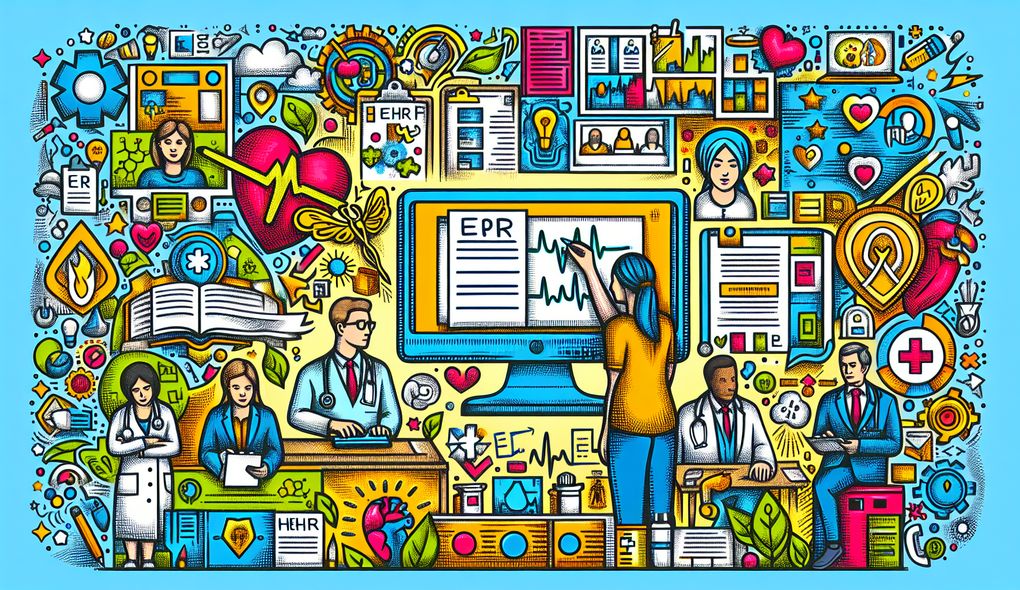How do you handle feedback or criticism from learners? Can you give an example of a time when you received constructive feedback and how you used it to improve?
INTERMEDIATE LEVEL

Sample answer to the question:
When it comes to feedback or criticism from learners, I always approach it with an open mind and a willingness to improve. I understand that feedback is essential for growth and development. For instance, one time, during a training session, a learner provided constructive feedback on the clarity of my instructions. Instead of getting defensive, I actively listened to their concerns and reflected on my teaching methods. I realized that I could enhance my instructions by using more visual aids and breaking down complex concepts into simpler terms. I immediately incorporated these changes into my subsequent training sessions and observed a significant improvement in learner comprehension and engagement.
Here is a more solid answer:
In my experience as an EHR Trainer, I have developed effective strategies for handling feedback and criticism from learners. First and foremost, I create a safe and supportive environment where learners feel comfortable sharing their thoughts. I actively listen to their feedback, ensuring I understand their perspective. For example, one learner provided constructive feedback about the pace of the training session. To address this, I implemented various techniques, such as incorporating interactive activities and allowing for more practice time. Additionally, I schedule one-on-one sessions with learners who need additional support or have specific questions. This personalized approach helps me cater to their individual learning needs and build a stronger rapport. Overall, I believe that feedback is an invaluable tool for professional growth, and I always strive to use it to enhance the learning experience for all participants.
Why is this a more solid answer?
The solid answer provides a more comprehensive response by highlighting specific strategies the candidate uses to handle feedback and criticism from learners. It also includes an example that directly addresses the evaluation areas mentioned in the job description, such as the ability to teach and engage a diverse group of learners and patient and supportive teaching methodology. However, the answer could still provide more specific details and examples to further demonstrate the candidate's skills and experiences.
An example of a exceptional answer:
Handling feedback and criticism from learners is an integral part of my role as an EHR Trainer. To ensure effective communication, I adopt a proactive approach by seeking feedback proactively and encouraging an open dialogue. For instance, after each training session, I provide a feedback form where learners can share their thoughts anonymously. This approach allows me to receive honest feedback, which I carefully review and analyze. One notable instance involved a learner expressing frustration with the complexity of the training materials. In response, I collaborated with the instructional design team to simplify the content and create interactive modules that catered to different learning styles. Additionally, I developed a comprehensive roadmap that continually incorporated learner feedback to enhance future training programs. This iterative process not only improved learner satisfaction but also positively impacted their ability to effectively use the EHR systems. By valuing feedback and using it to drive continuous improvement, I consistently deliver high-quality training that meets the diverse needs of healthcare professionals.
Why is this an exceptional answer?
The exceptional answer provides a detailed and specific response that demonstrates the candidate's exceptional skills in handling feedback and criticism from learners. It goes beyond the basic and solid answers by showcasing the candidate's proactive approach to seeking and analyzing feedback, as well as their collaborative efforts in improving training materials. The answer integrates the candidate's ability to manage multiple tasks simultaneously and their commitment to continuous improvement. It also emphasizes the impact of their approach on learner satisfaction and the effective use of EHR systems.
How to prepare for this question:
- Familiarize yourself with different feedback techniques and strategies for handling criticism from learners.
- Reflect on past experiences where you received feedback or constructive criticism and consider how you used it to improve.
- Consider examples where you adapted your teaching methods to accommodate diverse learning styles and engaged learners effectively.
- Highlight the importance of creating a supportive and safe environment for learners to provide feedback.
- Demonstrate your commitment to continuous improvement and how you integrate feedback into training programs.
What are interviewers evaluating with this question?
- Strong communication and presentation skills
- Ability to teach and engage a diverse group of learners
- Patient and supportive teaching methodology
- Organizational skills
- Ability to manage multiple tasks simultaneously

